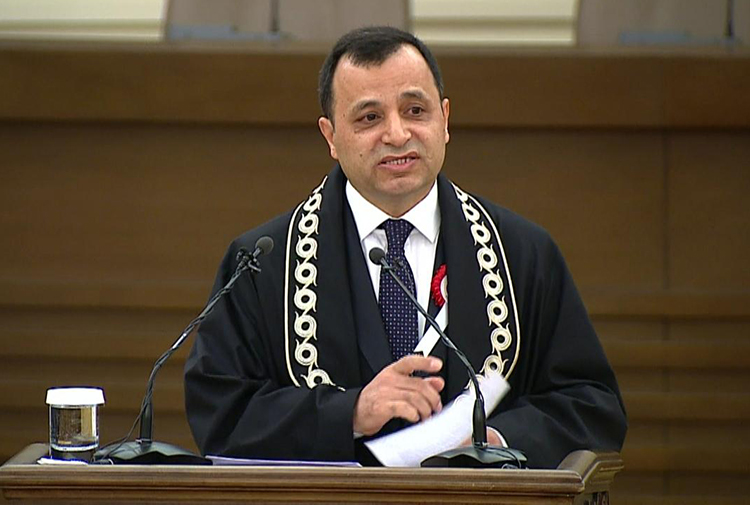Chief Justice Zühtü Arslan has complained about the growing workload of Turkey’s Constitutional Court, saying the court has as many applications as as the European Court of Human Rights (ECtHR) receives from 47 countries, Turkish media outlets reported.
Arslan said there are around 66.000 pending individual applications at the Constitutional Court, while the ECtHR has around 70,000 pending cases.
Arslan was speaking at a meeting on Monday for a project aimed at the effective implementation of Constitutional Court rulings in the area of fundamental rights. In the audience was Cristian Urse, head of the Ankara office of the Council of Europe, in addition to members of the Turkish judiciary.
“The only rival of the Constitutional Court in individual applications is the ECtHR. The ECtHR currently has around 70,000 pending applications, and these applications are from 47 countries. The Constitutional Court is getting almost the same number of applications the ECtHR receives from 47 countries,” Arslan said, adding that the court’s workload has reached a “dramatic” level.
Arslan said the top court received 12,000 individual applications in January alone and that this figure was much higher than the number of applications made annually to the constitutional courts of countries such as Germany and Spain.
The right to file an individual application with the Constitutional Court was introduced in 2012 in Turkey through constitutional amendments approved in a referendum in 2010.
Arslan said there were two goals with the introduction of individual applications to the top court. One was to deal with rights violations within the country’s borders without the need for people to go to the ECtHR, while the other was to increase standards in the maintenance of individual rights and freedoms, he said.
The chief justice said one factor leading to the growing workload at the court was the fact that its rulings are not effectively enforced.
“What needs to be achieved through individual applications is not to kill the mosquitos one by one but rather to drain the swamp,” he said.
Arslan was complaining about the failure of some courts to issue rulings in line with the decisions of the Constitutional Court, hence paving the way for more applications at the top court.
Turkey has been experiencing a deepening human rights crisis over the past eight years. Political and civil rights in Turkey have deteriorated so dramatically under President Recep Tayyip Erdoğan’s rule that according to Freedom House Turkey remains “not free” with a score of 32/100, in the same category as Russia, China and Iran.
According to human rights watchdogs, Turkish courts systematically accept bogus indictments and detain and convict without compelling evidence of criminal activity individuals and groups the Erdoğan government regards as political opponents, among them journalists, opposition politicians, activists and human rights defenders.
According to 2021 statistics announced by Robert Spano, president of the ECtHR, Turkey ranks second after Russia, with 15,250 applications pending at the ECtHR, with two-thirds of them concerning alleged violations in arrests and trials related to a coup attempt on July 15, 2016. As in the previous year, Turkey ranked first among the 47 Council of Europe (CoE) member states in the number of judgments from the ECtHR concerning violations of freedom of expression in 2021.
Many say the country’s judiciary lost its independence further after the failed coup following which Erdoğan’s Justice and Development Party (AKP) government launched a massive crackdown on non-loyalist citizens on the pretext of an anti-coup fight and removed 4,156 judges and prosecutors from their jobs for alleged membership in or relationships with “terrorist organizations” by emergency decree-laws subject to neither judicial nor parliamentary scrutiny.

